How the 'world's toughest one-day bike race' could put Bhutan ahead
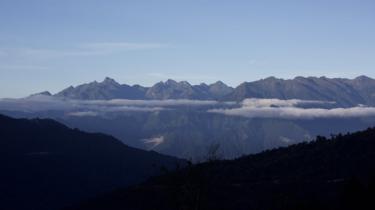 MELYN MCKAY
MELYN MCKAY
The reclusive kingdom of Bhutan has for years granted only limited access to tourists. But the country is now slowly attracting more visitors - and one way it is doing so is through extreme sports, as filmmaker Alex Bescoby recounts.
It was 2am on a chilly September morning in Bhutan, and a gruelling 268km (166 miles) slog lay ahead.
Between me and the finish line in the capital, Thimphu, lay four mountain-passes each more than 10,000ft high (3,050m) and a feat of endurance that has taken world-class athletes more than 11 hours to complete.
As the organisers of the Tour of the Dragon (TOD) point out, real dangers awaited.
The TOD has been billed as the "toughest one-day bike race in the world". Between the rough undulating terrain and the potential to run into wild tigers, leopards and wild boar, it wasn't hard to see why.
Only 47 others took part and most were, unlike myself, perfect cycling specimens from Bhutan and abroad.
'It's my dream'
Beside me at the start-line was Wangchuk Namgay, the youngest rider at just 17.
"It's my dream to complete this race," he confided.
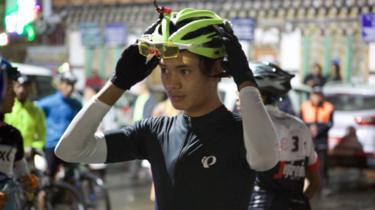 ALEX BESCOBY
ALEX BESCOBY
He had never ridden anywhere near this distance before, but his nerves were dampened by the months of training he had put in, and the potential to win the first prize of £1,500 ($1,950).
On my other side was a more seasoned Bhutanese rider, 46-year-old Rinzin Norbu, who was undertaking his eighth race.
"Has anyone ever died doing this?" I asked him, increasingly nervous.
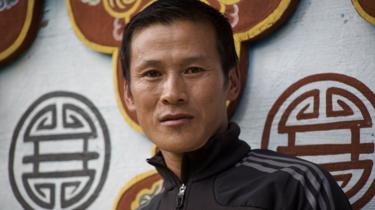 ALEX BESCOBY
ALEX BESCOBY
"No, not yet", he grinned. "Our prime minister broke his jaw. It didn't stop him finishing."
It's a good insight into the people that thrive in this nation of just 750,000, tucked between India and China, and nicknamed The Land of the Thunder Dragon.
Bhutan's Prince Jigyel Ugyen Wangchuck a passionate cyclist, founded the TOD in 2010 as a challenge between friends. But such is the veneration for the royal family in Bhutan, the race has become a national event.
The 34-year-old prince, dressed ready to race, stopped to greet each rider personally. Heads were bowed and backs straightened.
"Pace yourself, and stay safe," he told me in a reassuring tone.
Minutes later a rumbling prayer from saffron-robed monks built to a crescendo, and the starting gun set off a cloud of confetti.
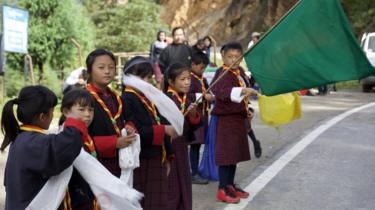 MELYN MCKAY
MELYN MCKAY
Before sunrise, darkness was the biggest danger.
The cheap torch I'd strapped to my handlebars failed to spot cows emerging like bovine icebergs in the pre-dawn fog. They refused to move - possibly due to a lack of fear stemming from the ban on all animal-killing in Bhutan, or perhaps due to the copious marijuana growing wild around us.
When the sun finally rose five hours later, it brought its own problems. The temperature rocketed, and my skin turned bright-red in the thin mountain air.
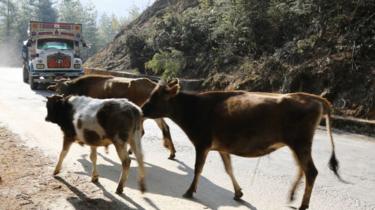 GETTY IMAGES
GETTY IMAGES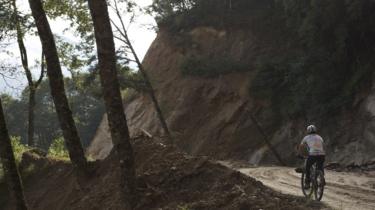 MELYN MCKAY
MELYN MCKAY
The five-hour uphill slog that followed deserved its own circle in hell. Bhutan only paved its first road in 1962, and large sections of the route remained a work-in-progress.
As I inched forward in the lowest gear through mile-after-mile of treacle-like mud, the air turned blue with my increasingly inventive swearing.
I found myself dead last, making painfully slow progress. The driver of the sweeper bus behind me alleviated his boredom by live-streaming my efforts across social media via his smartphone.
Culture vs cash
Mobile phones only arrived in Bhutan in 2003 - just four years after the television - but the country is now reaching 100% penetration rates.
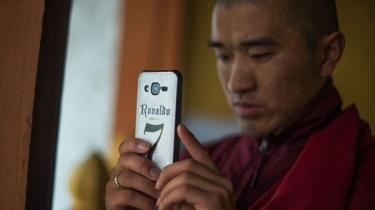 GETTY IMAGES
GETTY IMAGES
Its thinly spread population once relied on messengers travelling weeks on foot through precarious mountain passes.
But now social media is connecting the Bhutanese like never before, as well as broadcasting my suffering across the country in seconds.
And it's not just smartphones that have taken off in Bhutan. The country's tourism industry is also on the rise.
Bhutan has traditionally restricted tourism to the wealthy few, using steep daily visa-fees to safeguard its pristine environment and proudly independent culture.
But a partnership agreement with India has seen large numbers of tourists visiting Bhutan visa-free in the last few years.
Many bring their own cars and supplies, and stay only briefly in the growing number of high-volume, low-budget hotels popping up across the country.
While some welcome the extra revenue and interest in Bhutan's unique history and culture, it's an issue causing rare disagreement in a country famous for focusing on "Gross National Happiness".
Finding the right balance will likely be top of the agenda for the new government formed after Bhutan goes to the polls for only the third time in history in October.
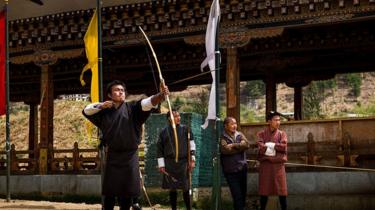 GETTY IMAGES
GETTY IMAGES
So perhaps cycling could be the country's way of striking that balance - attracting international athletes while showcasing the best of its culture and environment.
Bhutan is traditionally known for its obsession with archery, its national sport.
But the Bhutan Olympic Committee (BOC) has been increasingly keen to see Bhutan's young athletes consider cycling as an option.
Its secretary-general, Sonam Karma Tshering, believes the presence of world-famous cyclists taking part in the TOD could inspire a future Bhutanese world-champion. He feels that Bhutan's unforgiving terrain is the perfect place for elite cycling to take hold.
The royal family's passion for cycling has also helped.
Bhutan's beloved former king, now in happy retirement having abdicated in favour of his son, can be seen cycling dressed in his traditional gho most days in the hills around Thimphu.
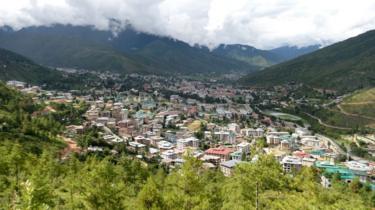 GETTY IMAGES
GETTY IMAGES
Back in the unforgiving mountains, my race towards the finish line continued.
After more than 14 soul-destroying and awe-inspiring hours, I finally surrendered at the 200km mark - a distance surprising both me and my growing online following.
"Ah, the last man standing", quipped Mr Tshering as I limped into his office at the BOC a few days later to discuss his vision for the race.
"It could be the Tour de France of Bhutan!" he declared, only half-joking.
While the race was over for me, the BOC has high hopes of attracting more riders than ever for next year's 10th TOD. But there is a limit, Mr Tshering insisted.
"We want a world class race without selling our soul."